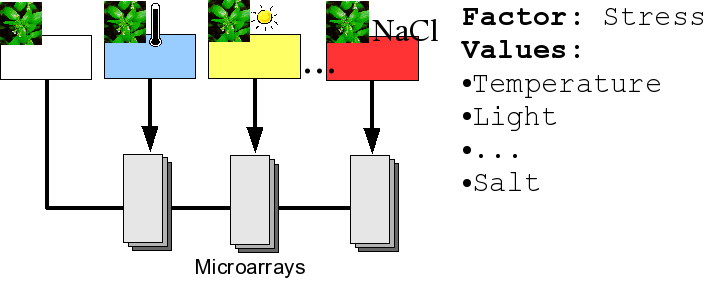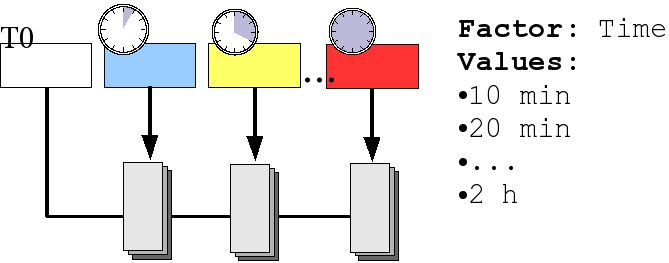EMMAWiki/TermsAndConcepts/ForUsers/Experimental Factors: Difference between revisions
imported>VirginieMittard No edit summary |
|||
| (One intermediate revision by one other user not shown) | |||
| Line 9: | Line 9: | ||
The following examples illustrate some possible experimental designs: | The following examples illustrate some possible experimental designs: | ||
[[ | [[File:FactorValuesStress.png]] | ||
---- | ---- | ||
[[ | [[File:FactorValuesTime.png]] | ||
Latest revision as of 13:14, 26 October 2011
Terms and Concepts: Experimental Factors and Values
Experimental Factors and Factor Values are the essential concepts for grouping arrays within an Experiment. An Experimental Factor is a condition (like temperature, time, light intensity, concentration of a substance) of which you want to measure the effect on the organism under study. During the Experiment the Factor Value of the Factor is controlled by the experimenter (e.g. for the Factor temperature actual Factor Values could be 10 degr.C., 20 degr.C., ...). An experiment could also involve many factors with different values. Example: Comparison of the effect of different stresses (Factor: Stress, Values: Stress conditions) during growth over time (Factor: Time, Values: Timepoints of measurements).
Arrays sharing the same unique combination of values can be seen as replicates. The choice of Factors, Values and the assignment of Arrays to these constitue the experimental design, and will be used to group replicates for analysis.
The following examples illustrate some possible experimental designs:

